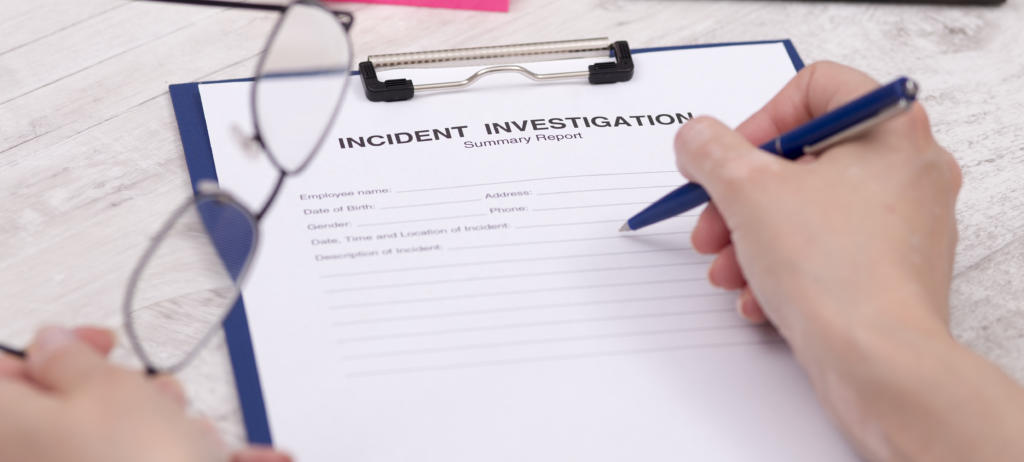
As part of the work of the interim safeguarding taskforce, the Charity Commission conducted a detailed review of serious incidents reported to it between 1 April 2014 and 20 February 2018. This found that 0.9 per cent of registered charities submitted serious incident reports related to safeguarding and 1.5 per cent of charities had submitted a serious incident report.
The Commission were very “concerned” by the findings which they describe as “significant and systematic underreporting” and signalled that a culture change in attitudes to reporting serious incidents was needed. Sarah Atkinson, Director of Policy, Planning and Communications, indicated: “Making a serious incident report to the Commission is not in itself an admission of wrongdoing or failure. Quite the reverse: it demonstrates that a charity is responding properly to incident or concern”.
The Charity Commission saw a significant increase in the number of serious incident reports. Charities submitted a total of 2,114 reports of serious incidents relating to safeguarding incidents or issues between 20 February and 30 September 2018, compared to 1,580 serious incident reports about safeguarding received in the whole of 2017-18, and 1,203 received in 2016-17.
The Charity Commission updated its guidance on reporting serious incidents on 17 October 2018. A summary of the key considerations is detailed below.
Overview
Serious incident reporting is required of all charities, as regulated bodies. The serious incident reporting regime is intended to act as a check to make sure charities:
- Put in place appropriate procedures on fraud, safeguarding and other relevant risks to minimise the risk of such incidents arising
- Take appropriate steps to deal promptly with incidents or allegations as they arise
- Get support from the Charity Commission
- Can learn from the experiences of the charity, and share lessons to be learnt with the wider sector (e.g. fraud alerts if the commission becomes aware that a number of charities are being targeted).
Trustee responsibilities
The guidance emphasises the role of the trustees (rather than just the employees) of being aware of matters that could constitute serious incident reports and deciding whether a report should be made to the Charity Commission. As such, trustees should be aware of their duties and implement appropriate serious incident reporting policies and schemes of delegation as necessary. The guidance highlights the Charity Commission “does not expect charities to report every internal staffing incident – charities need to make a judgement call about which incidents either individually, or as a collection, are serious in the context of the charity.”
If trustees fail to report a serious incident that subsequently comes to light, the Charity Commission may consider this to be mismanagement, i.e. if trustees have failed to manage the risks properly and breached their legal duties. This may result in regulatory action, particularly if further abuse or damage has arisen following the initial incident.
What should be reported?
The Guidance confirms that significant means “significant in the context of your charity, taking account of its staff, operations, finances and/or reputation.”
This means an incident, actual or alleged which risks;
- harm to your charity’s beneficiaries, staff, volunteers or others who come into contact with your charity through its work (who are collectively referred to throughout this guidance as people who come into contact with your charity through its work)
- loss of your charity’s money or assets
- damage to your charity’s property
- harm to your charity’s work or reputation
These are incidents involving:
- protecting people and safeguarding incidents – incidents that have resulted in or risk significant harm to beneficiaries and other people who come into contact with the charity through its work;
- financial crimes – fraud, theft, cyber-crime and money laundering;
- large donations from an unknown or unverifiable source, or suspicious financial activity using the charity’s funds;
- other significant financial loss;
- links to terrorism or extremism, including ‘proscribed’ (or banned) organisations, individuals subject to an asset freeze, or kidnapping of staff;
- other significant incidents, such as – insolvency, forced withdrawal of banking services without an alternative, significant data breaches/losses or incidents involving partners that materially affect the charity.
Please note that the Guidance details the reporting of incidents involving criminal activity and safeguarding in greater detail. It also deals with relationships with partners particularly in the contact of international operations and incident reporting responsibilities.
There is an updated version of the examples table, which not definitive, provides some useful examples of the types of incident to be reported. The Charity Commission’s Regulatory and Risk Framework also explains their approach to regulation and how they assess risk when deciding how it deals with particular cases
Timing and method of reporting
All charities regardless of size and income are required to report an actual or alleged incident promptly. This means as soon as is reasonably possible after it happens, or immediately after your charity becomes aware of it. The obligation to report to the Charity Commission is additional to, and not a substitute for, reporting issues as appropriate to the police, safeguarding authorities and other regulators.
A charity should report incidents when aware of them and not await the outcome of any potential police arrest, investigation etc.
All serious incidents need to be reported by email to: RSI@charitycommission.gov.uk
Annual Return
If a charity’s income is over £25,000, the trustees must, as part of the annual return, sign a declaration confirming there were no serious incidents during the previous financial year that should have been reported to the Commission but were not. If incidents did occur, but weren’t reported at the time, the charity should submit these before it files the charity’s Annual Return, so that the trustees can make the declaration.
Until all serious incidents have been reported, the trustees unable to make this declaration, or complete the annual return, which is a statutory requirement under section 169 of the Charities Act 2011. Please note that it is an offence under section 60 of the Charities Act 2011 to provide false or misleading information to the Commission, which includes through the annual return.
Practical steps for charity compliance
- Review your serious incident, safeguarding and whistleblowing policies and procedures;
- Review your financial and fraud controls;
- Make sure such matters are more than paper policies and that an understanding of the reasons for and how to apply these are embedded in the culture of the charity;
- Ensure employment policies are up-to-date and reflect these obligations;
- Be ready to make a serious report by ensuring that you have an agreed internal and external communications strategy and appropriate internal controls and procedures in place to ensure you can carry out an investigation and / or seek appropriate help from professional advisers as necessary.
If your charity would like clear, practical advice regarding its serious incident reporting obligations please contact our specialist charity team who can provide you with advice and training tailored to meet your needs.
